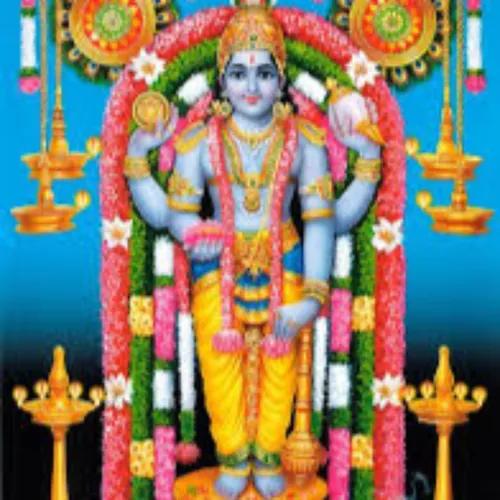
Srimad Narayaneeyam
Narayaneeyam is a celebrated Sanskrit devotional hymn composed by Melpathur Narayana Bhattathiri in 1586 AD. It condenses the 18,000 verses of the Bhagavata Purana into 1,036 verses, praising Lord Narayana (Vishnu) and his avatars. Bhattathiri wrote it while suffering from severe rheumatism, after praying to transfer the illness from his guru to himself. Composing Narayaneeyam at the Guruvayur temple, he chanted one chapter daily, seeking divine healing. On completing the hundredth chapter, he is said to have been cured by Lord Krishna’s grace.
- Update frequency
- every day
- Average duration
- 9 minutes
- Episodes
- 103
- Years Active
- 2025
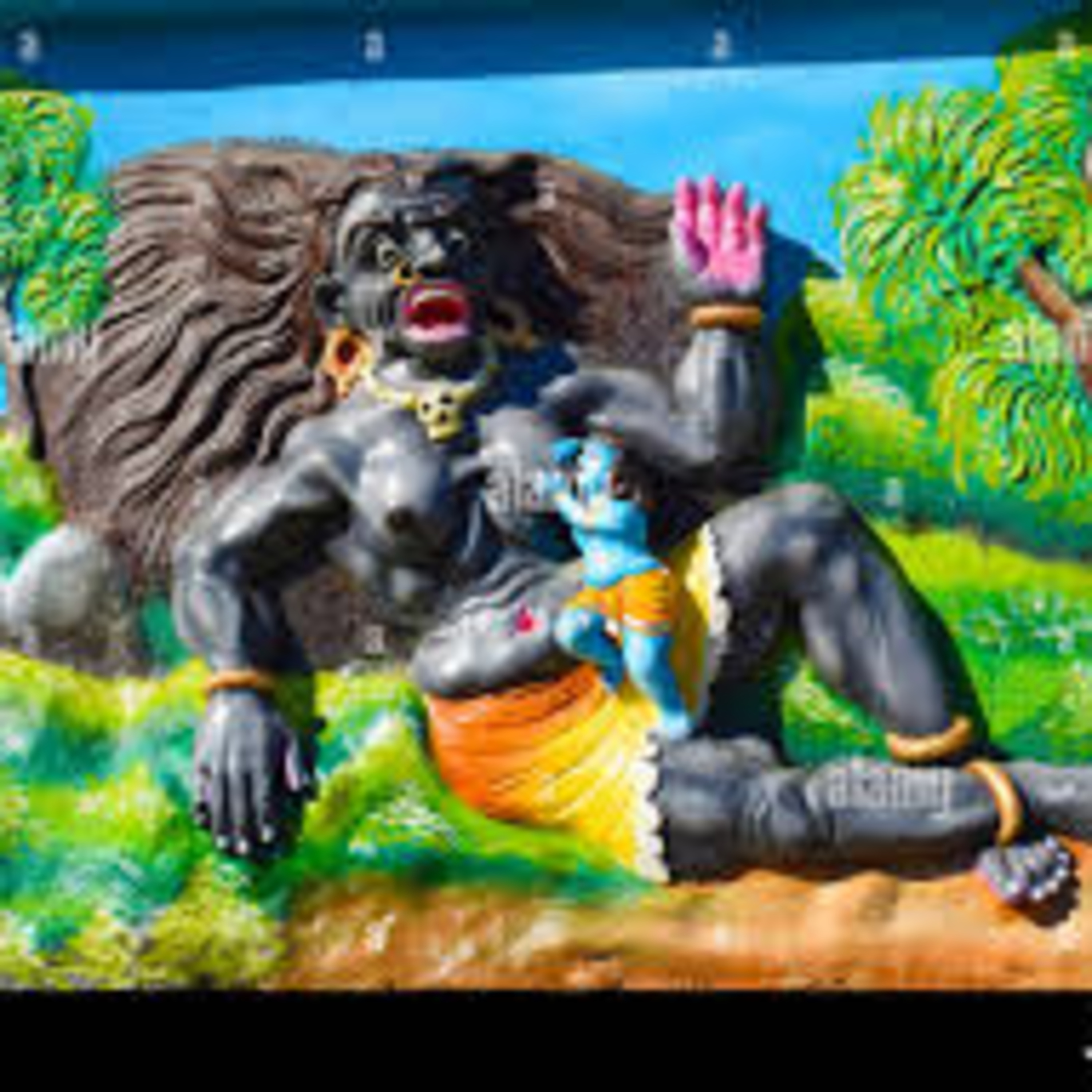
Dashakam 040 Bhoothana Moksham
Dashakam 40 of Narayaneeyam is important as it narrates the story of Poothana Moksha (salvation). Poothana was a demoness sent by the tyrant Kamsa to kill Lord Krishna by feeding him poisoned milk. H…
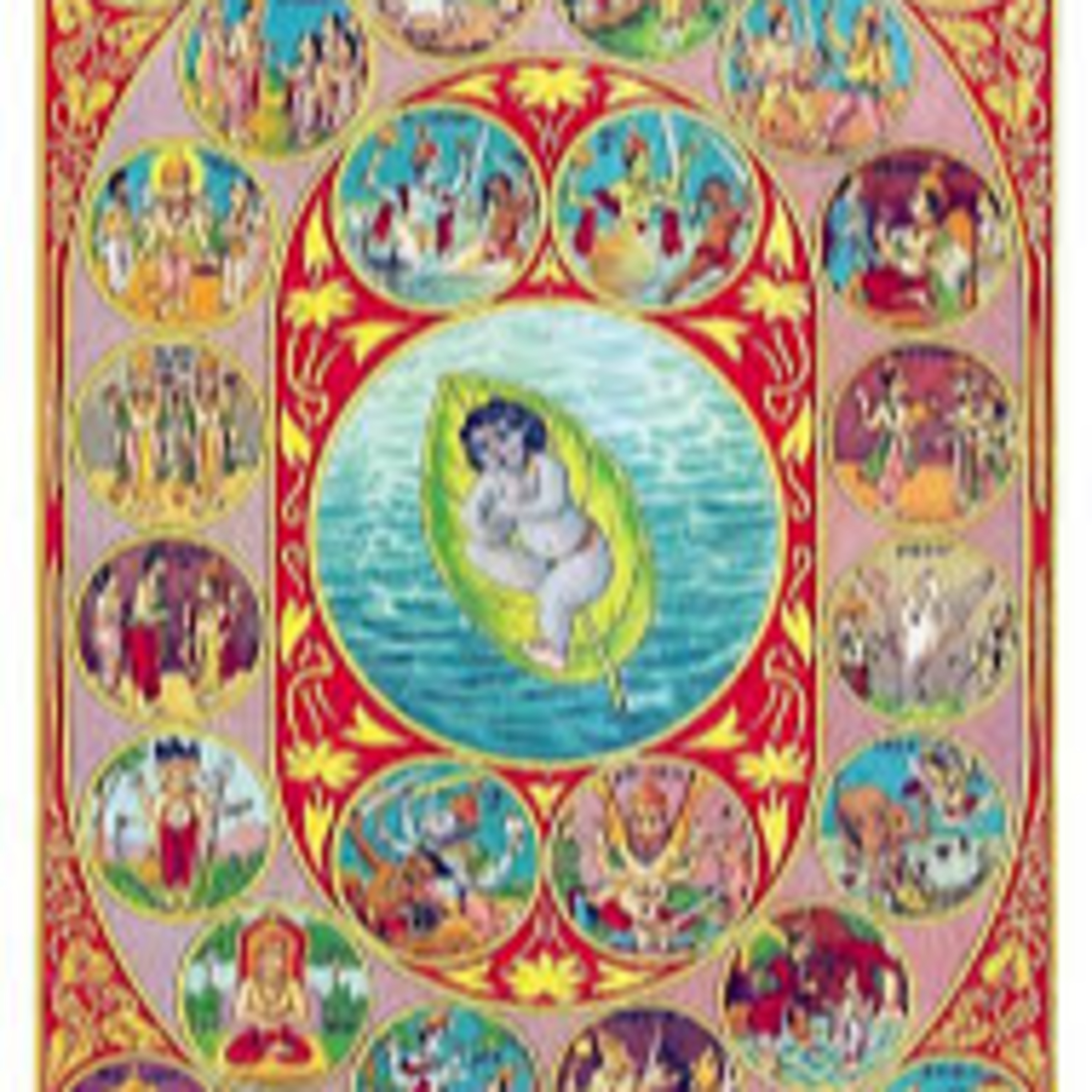
Dashakam 039 Celebrations of Sri Krishnavathar
This episode holds important significance as it narrates the story of the divine coming out of Yoga Maya and the celebration of Krishna's birth.
Key points include:
When Vasudeva was carrying the newbo…
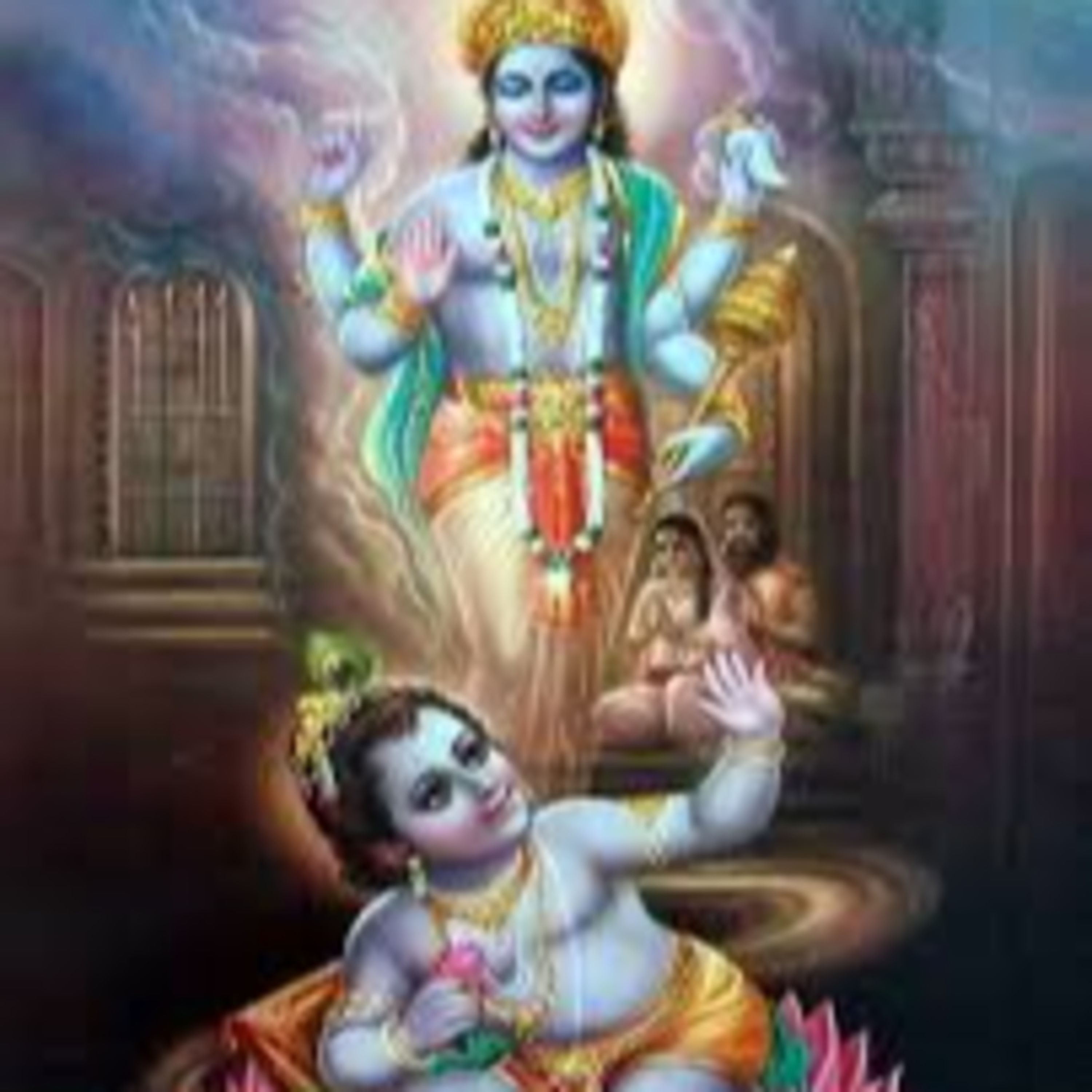
Dashakam 038 Sri Krishnavatharam
Dashakam 38 is significant as it describes the incarnation of Lord Krishna, the eighth avatar of Lord Vishnu. This Dashakam vividly portrays the divine and blissful appearance of Krishna at his birth…

Dashakam 037 Prelude to Sri Krishanavatharam
This Dashakam is the commencement of the Mahābhāgavata section in Narayaneeyam, shifting focus from the Lord’s Avatāras to His cosmic form and ultimate glory. This Dasakam encapsulates the devotee’s …
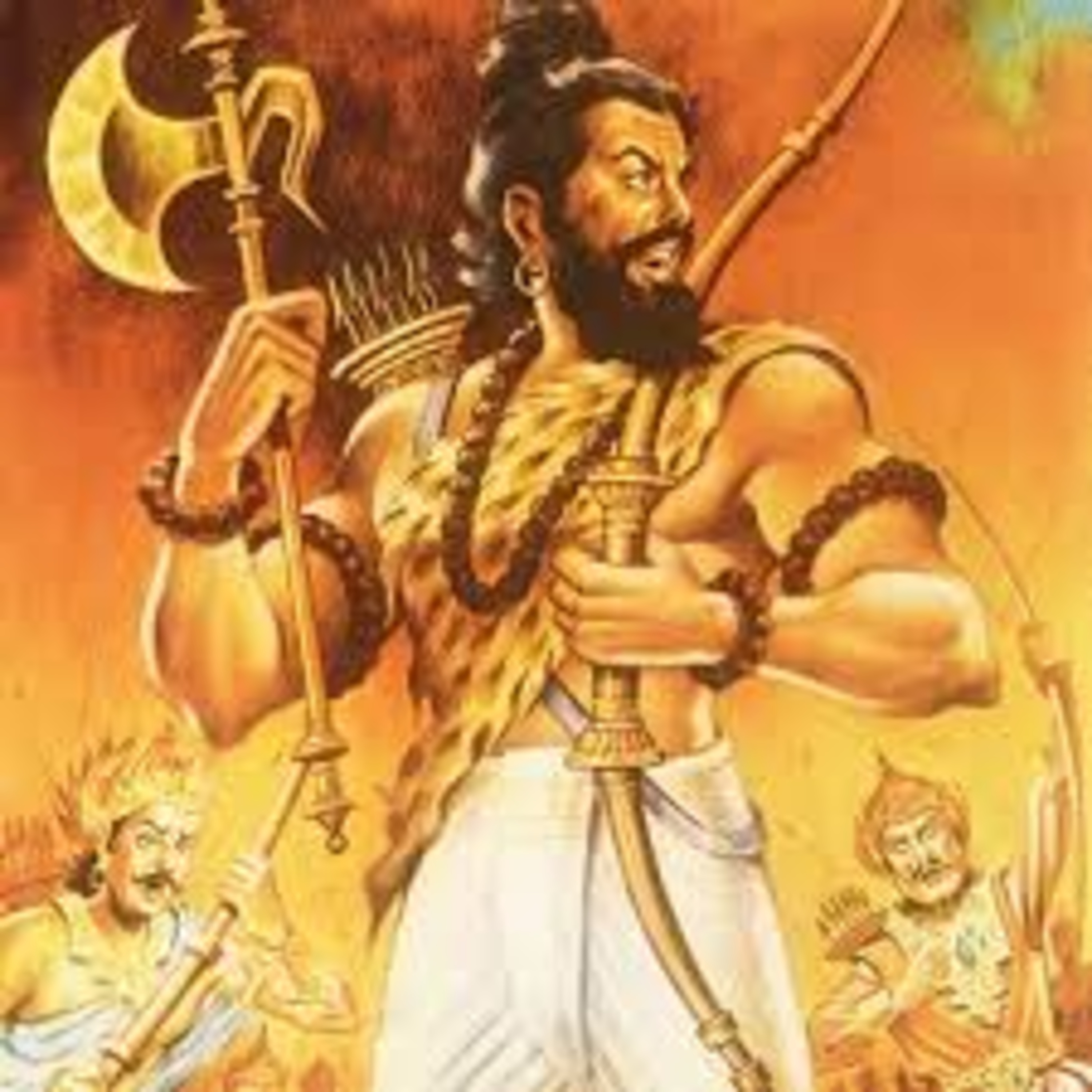
Darshakam 036 Parashurama Avatharam
This episode celebrates the Pārasurāma Avatāra, the sixth incarnation of Viṣṇu, whose role is to eradicate unrighteous Kṣatriya rulers and re-establish dharma. It recounts how Pārasurāma, born to Sag…
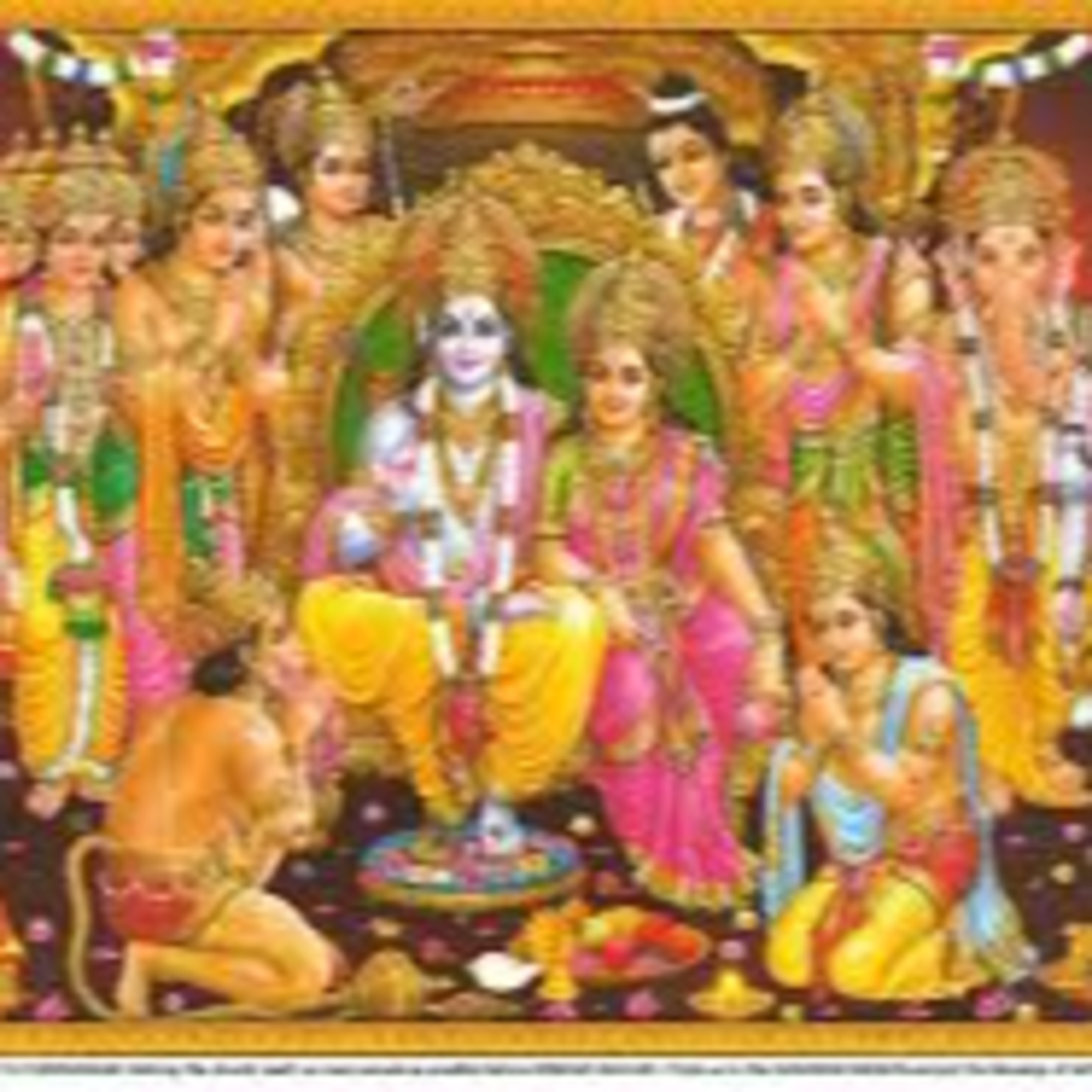
Dashakam 035 Sri Rama pattabhishekam & Return to Vaikuntam
This episode serves as the culminating chapter of the Rama Avatāra narrative within the Narayaneeyam, weaving together the climactic events of Lord Rama’s mission and imparting a profound spiritual l…
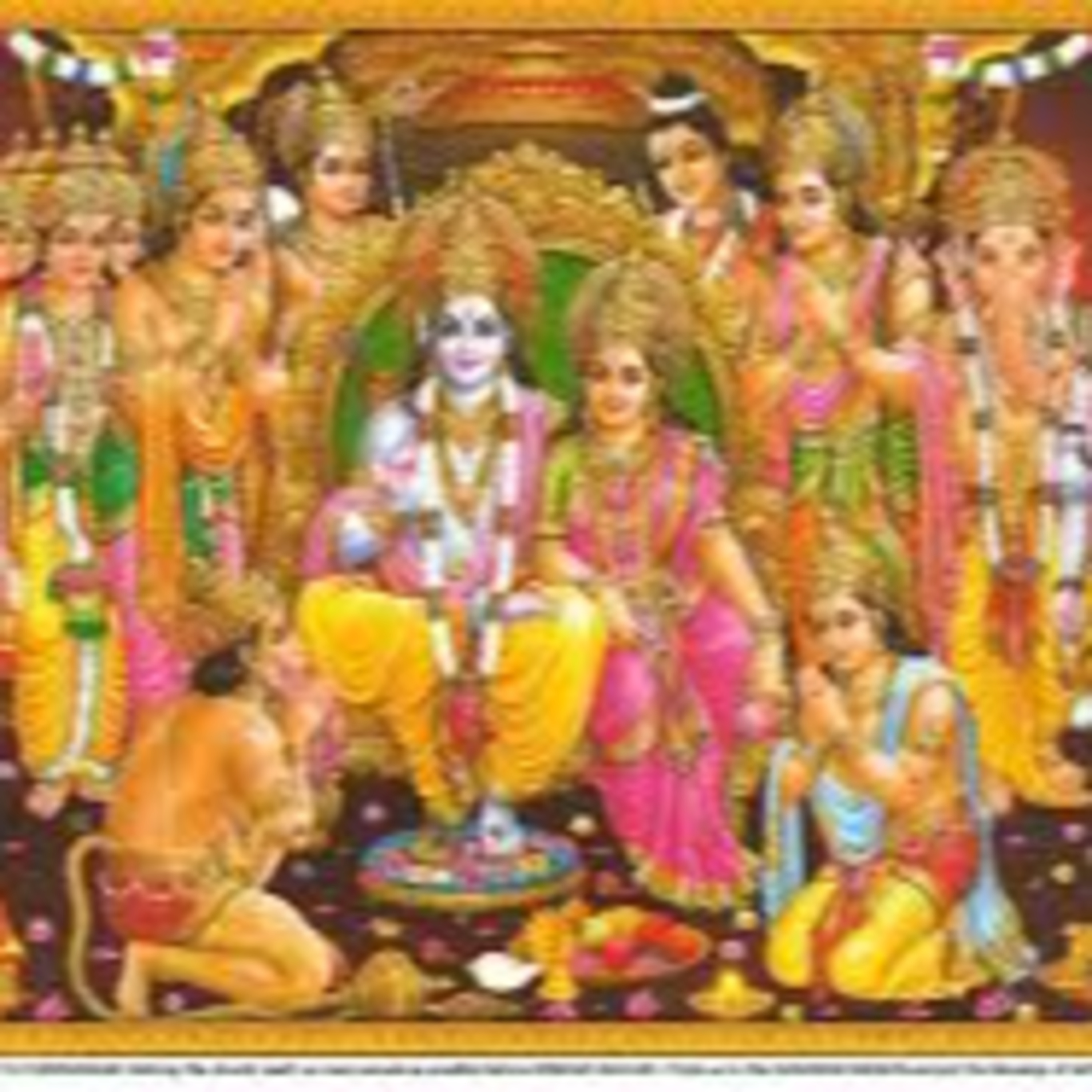
Dashakam 034 Srirama Avatharam
Alike other Dashakams, this Dashakam is significant as it narrates the story of Lord Rama, focusing on his incarnation and early life until his meeting with Hanuman. This Dashakam highlights:
The birt…

Dashakam 033 Ambarisha Charitham
This Dashakam is significant because it narrates the story of King Ambareesha, a great devotee of Lord Vishnu who was specially protected by the Sudarshana Chakra. The chapter highlights:
Ambareesha's…
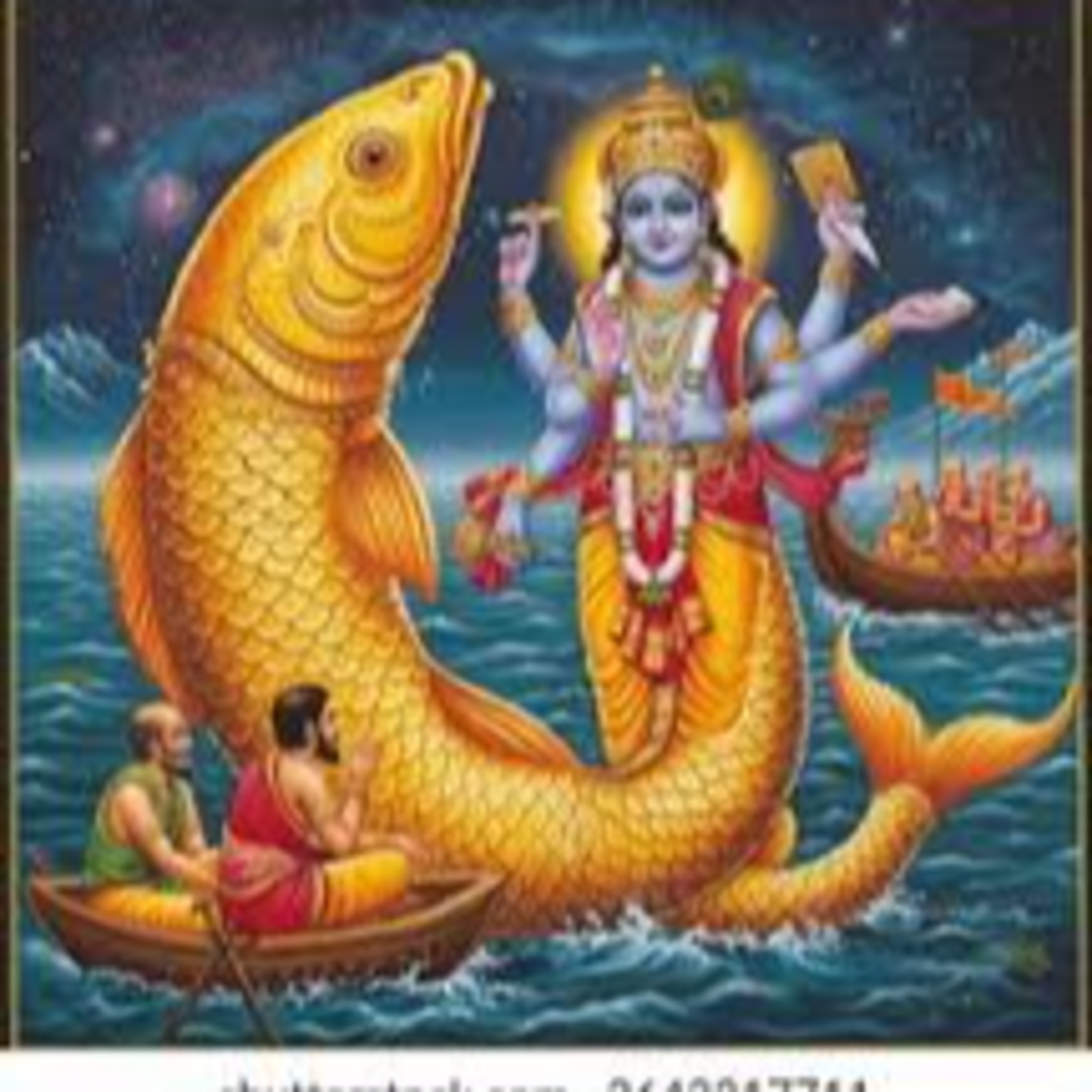
Dashakam 032 Matsya Avatharam
This Dashakam holds great significance as it describes the Matsya Avatar, the fish incarnation of Lord Vishnu. This Dashakam narrates how Lord Vishnu incarnated as a fish to save the Vedas and human…
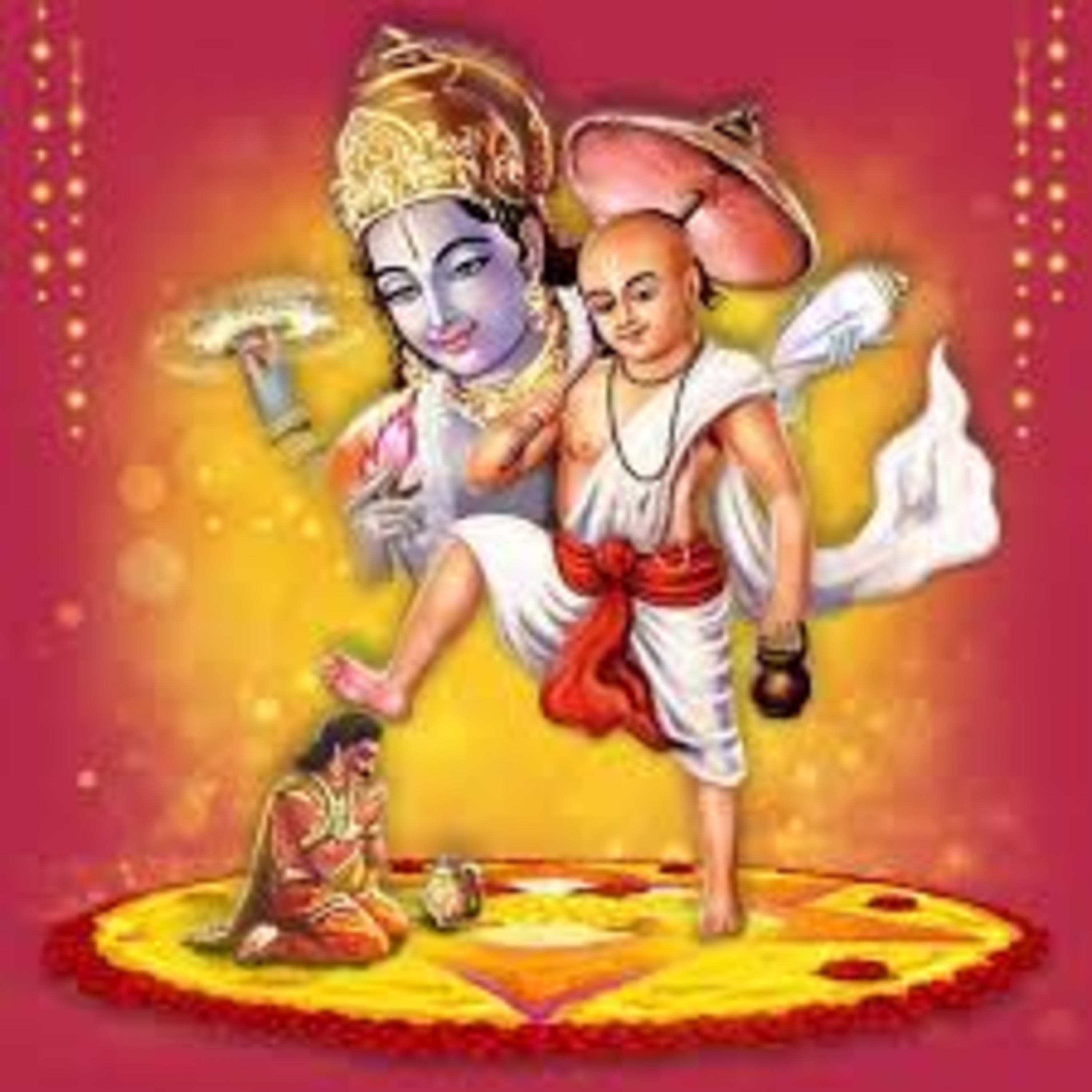
Dashakam 31 Bali Moksham
This episode is significant because it narrates the humbling of the pride of Mahabali, the demon king, during the Vamana Avatar story. This chapter conveys important spiritual lessons:
Mahabali, thoug…

Dashakam 030 Vamana Avatharam
This episode is significant as it describes the Vamana Avatar, the fifth incarnation of Lord Vishnu. This Dashakam narrates the story where Lord Vishnu takes the form of a dwarf Brahmachari (Vamana) …
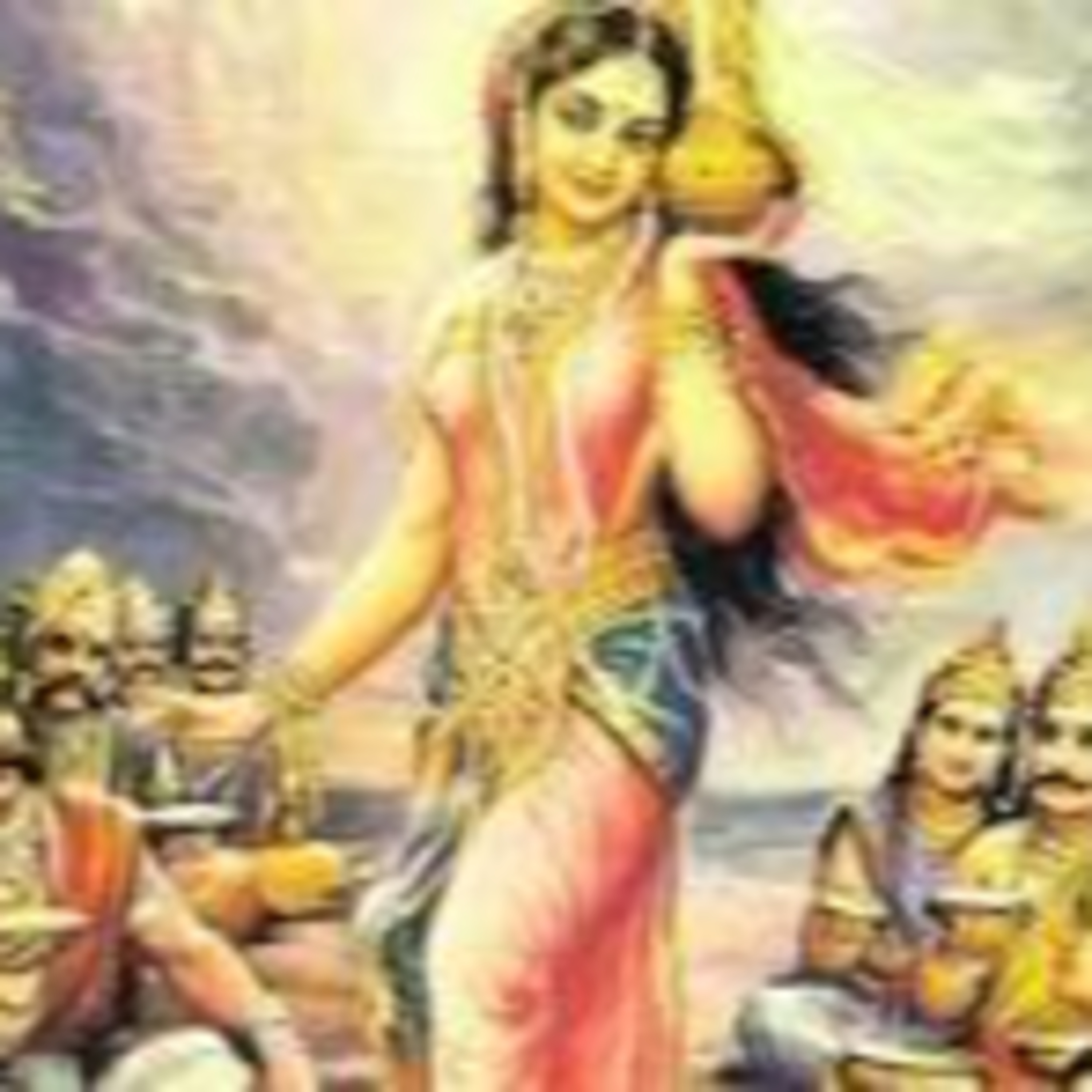
Dashakam 029 Incarnation as Mohini
This episode is significant as it narrates the episode of the stealing of the nectar (Amrita Haranam) and the Mohini Avatar of Lord Vishnu. After the churning of the ocean of milk, the nectar of immo…
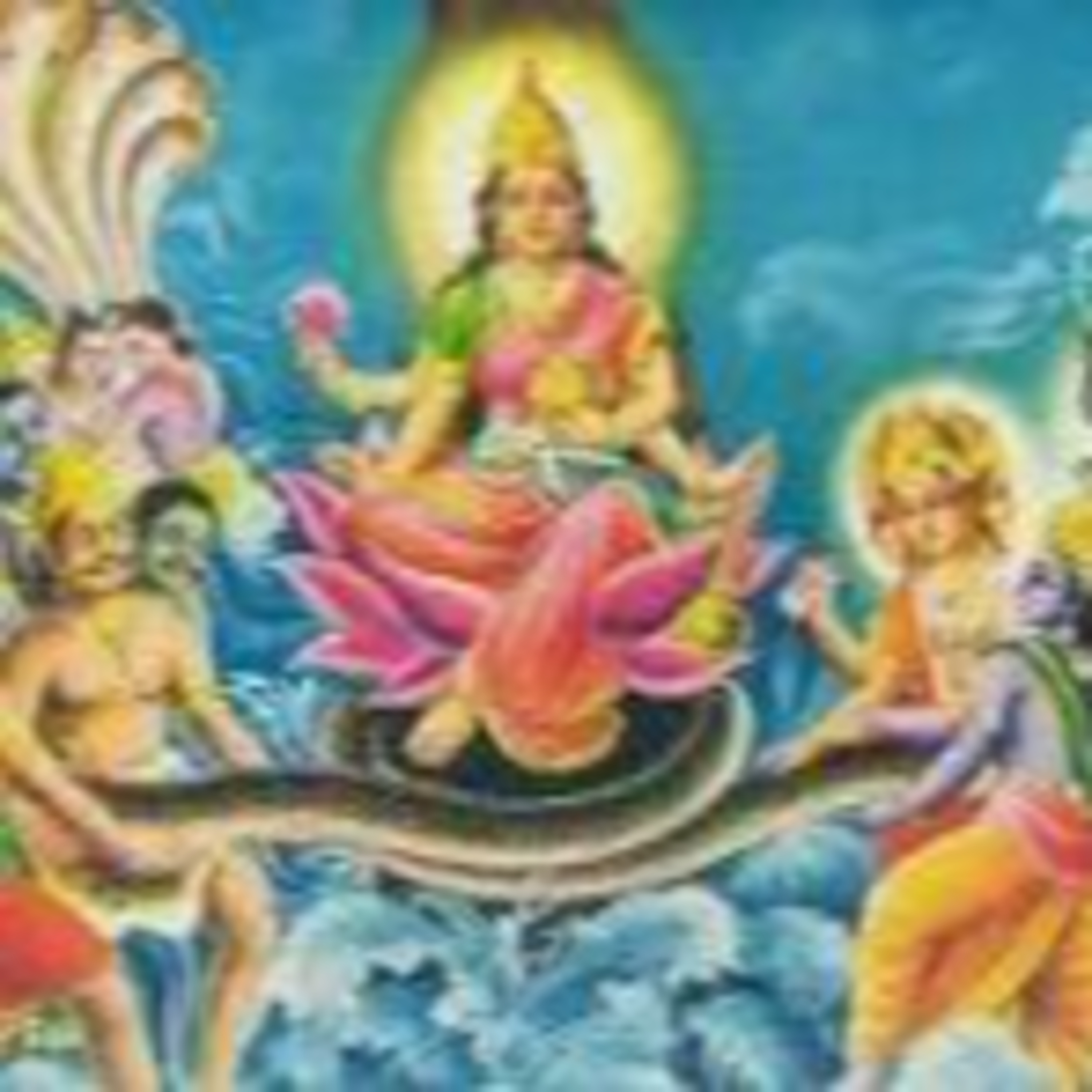
Dashakam 028 Appearance of Lakshmi & Her Swayamvaram
This Dashakam is important because it describes the event of the churning of the ocean of milk and the emergence of various divine beings and objects, including Goddess Lakshmi and the nectar of immo…
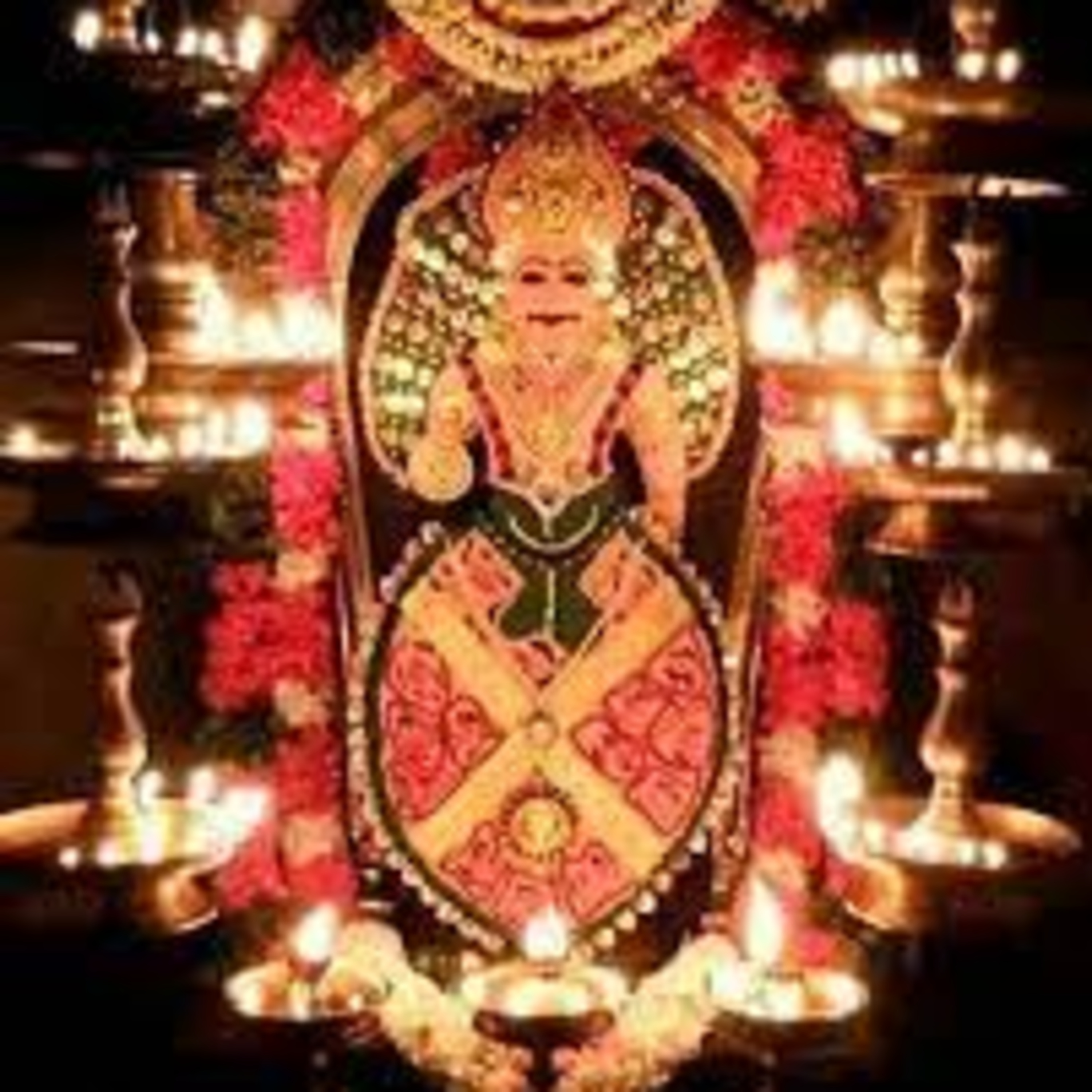
Dashakam 027 Koormavatharam
Dasakam 27 of Narayaneeyam is significant because it describes the famous mythological episode of the "Churning of the Ocean of Milk" (Kshirabdhi Mathanam) and the "Tortoise Incarnation" (Kurmavatara…
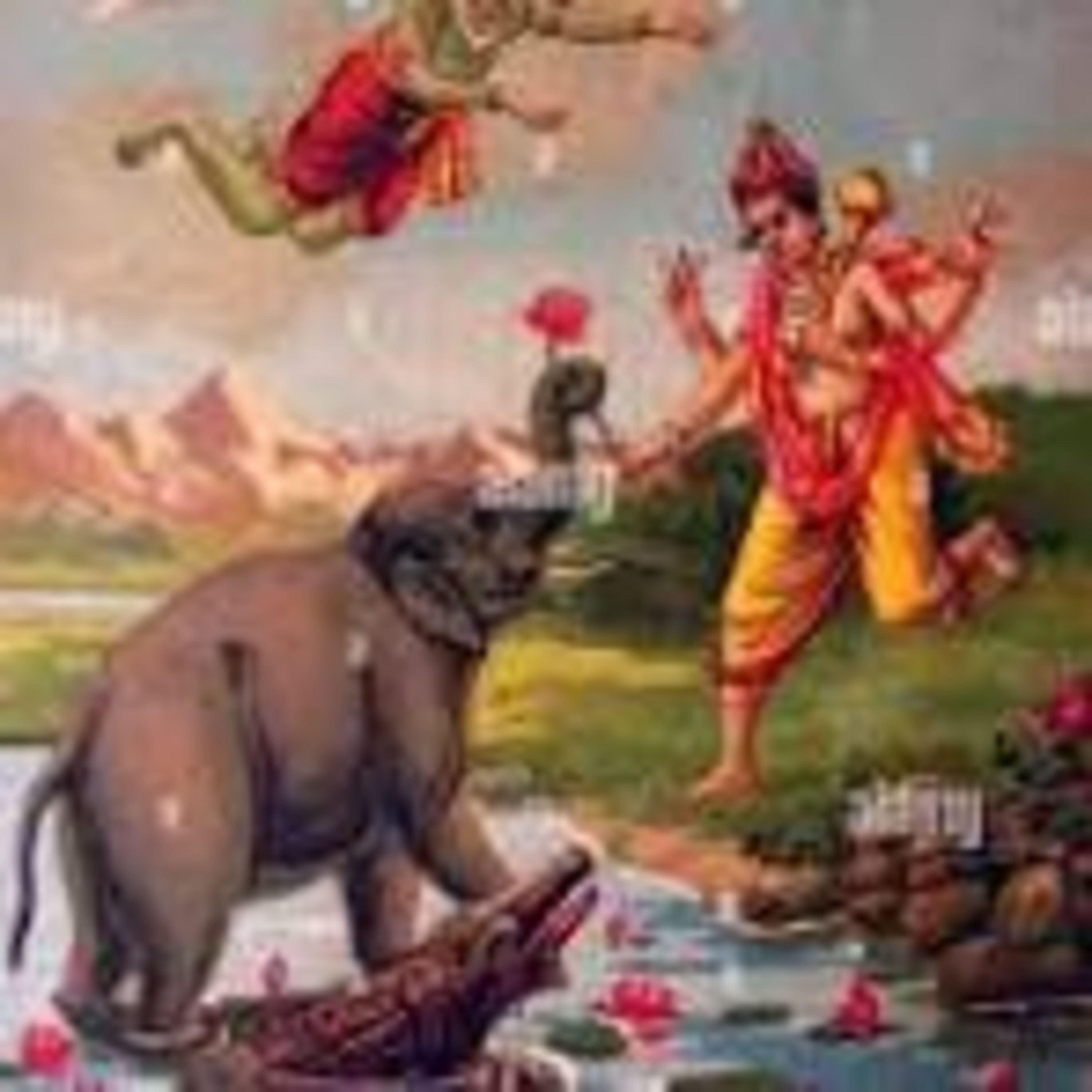
Dashakam 026 Gajendra Moksham
In this Dashakam of Narayaneeyam, known as Gajendra Moksha, holds significant spiritual importance as it narrates the story of the salvation of the elephant king Gajendra. According to the text, a ki…
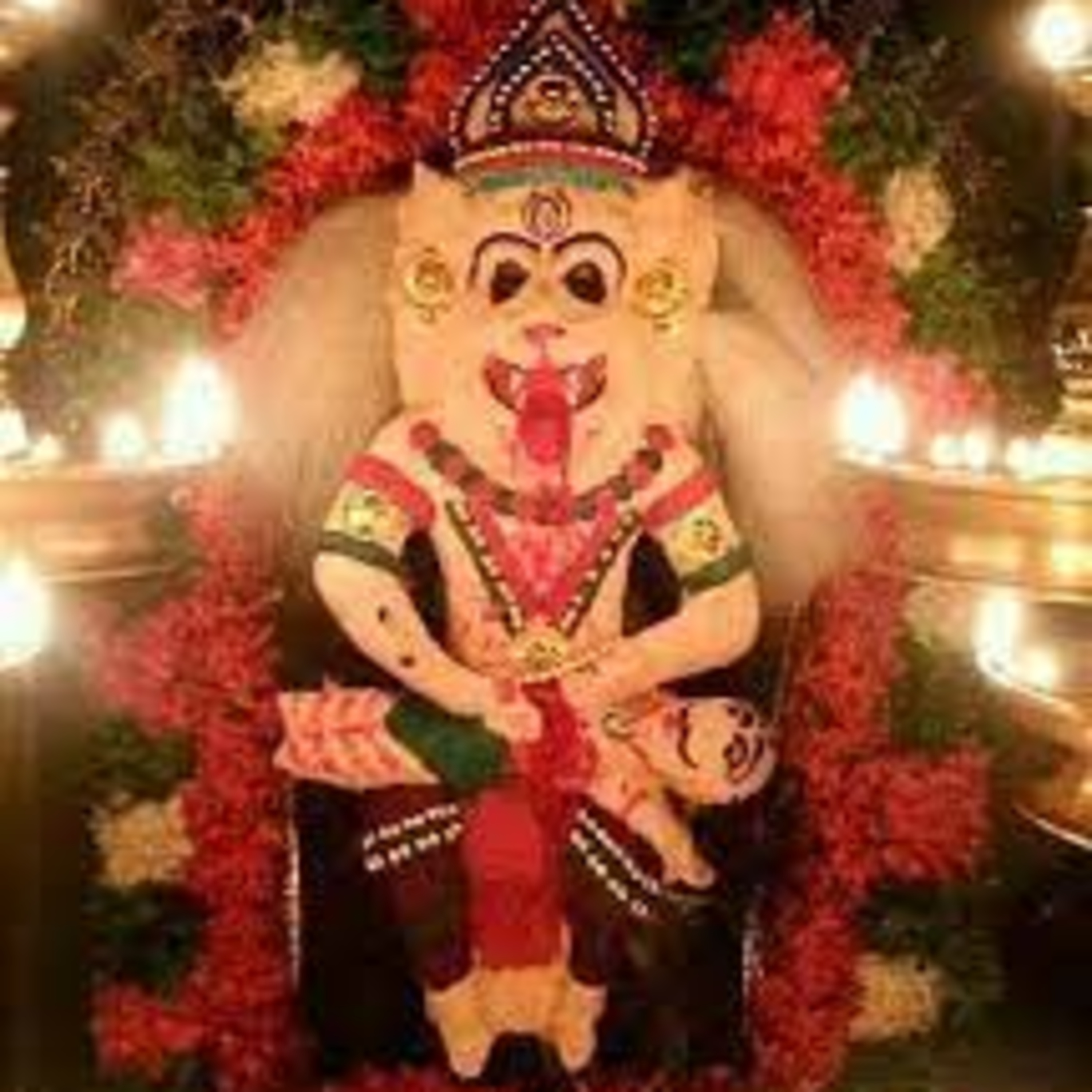
Dashakam 025 Incarnation as Nrasimha
This episode describes the fierce incarnation of Lord Narasimha, the half-man, half-lion form of Lord Vishnu, who appears to protect Prahlada and destroy the demon king Hiranyakashipu. This dashakam …
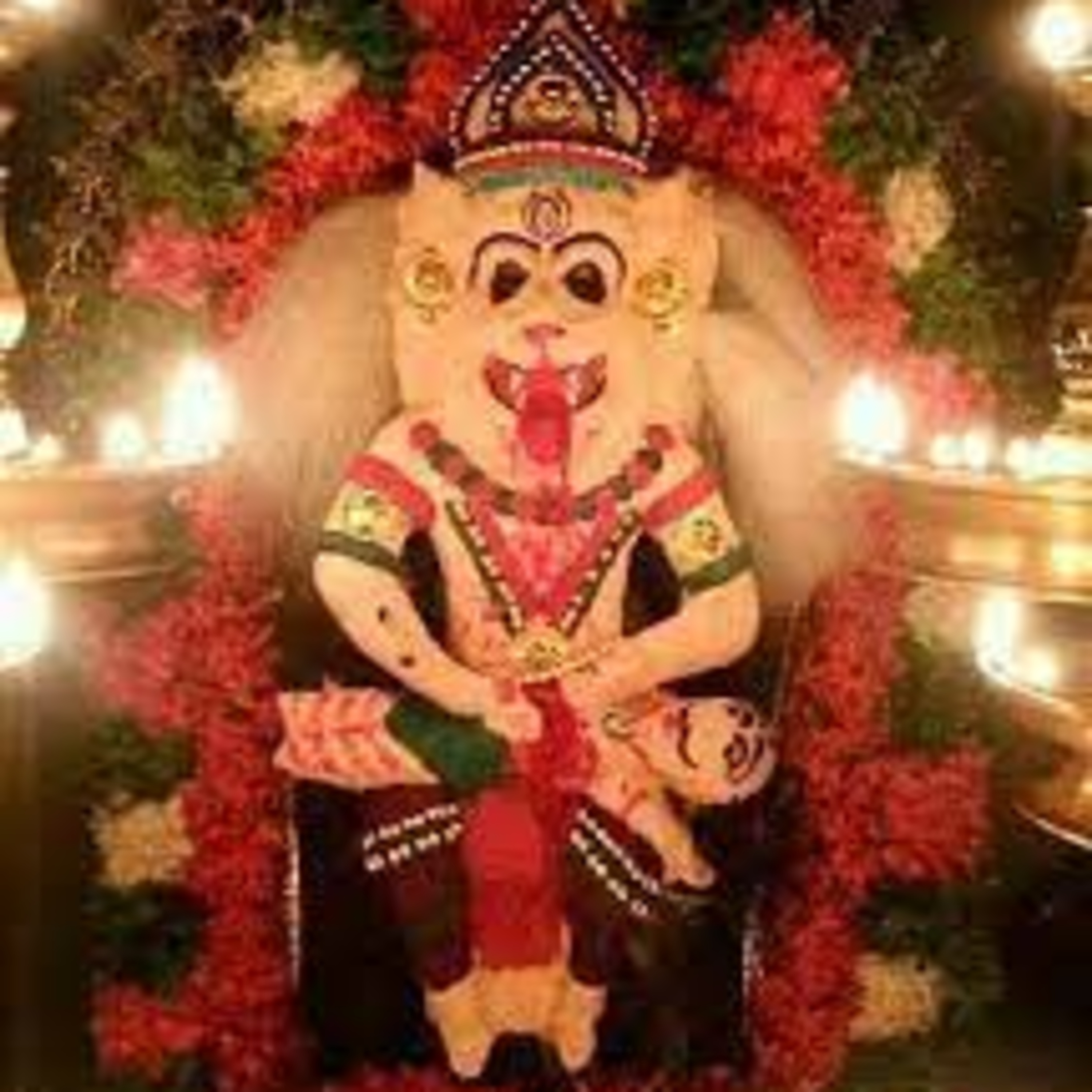
Dashakam 024 Prahlada Charitam
This episode is importance because it narrates the story of Prahlada, a supreme devotee of Lord Vishnu, and the tyranny of his father Hiranyakashipu, a demon king who obtained a boon making him seemi…

Dashakam 023 Daksha & Chitraketu
This episode is significant for narrating the story of Daksha, Chitraketu, and the Maruths, which continues the theme of divine grace, cosmic order, and spiritual transformation. Key points of this D…

Dashakam 022 Ajamila Moksham
Dashakam 22 of Narayaneeyam is significant for narrating the story of Ajamila, a Brahmin who turned to a sinful life but was ultimately saved by the mere utterance of the holy name "Narayana" at the …

Dashakam 021 Geography
Dashakam 21 of Narayaneeyam is significant for its rich description of the ancient geography of the earth and the various continents and peoples inhabiting different regions, as known at the time. It…